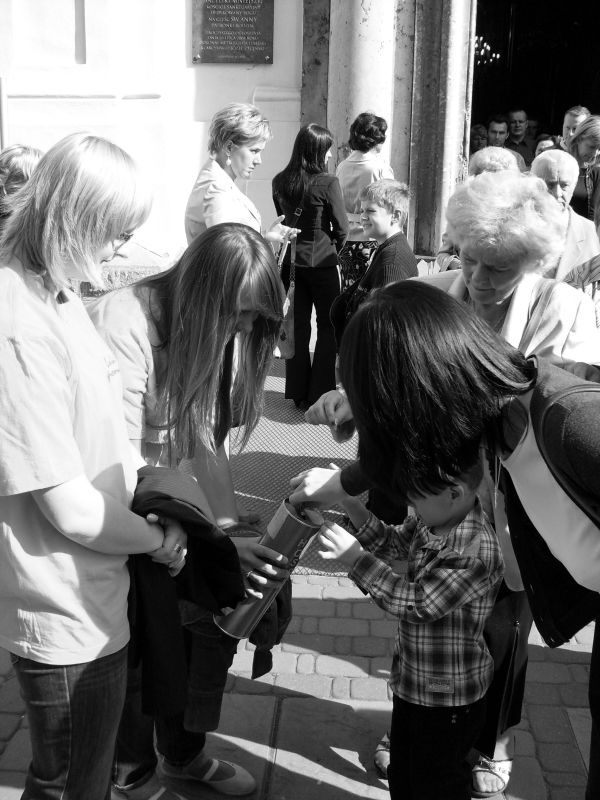moral distress and moral resiliencesection 301 staples center concert
dodane przez dnia lis.20, 2021, w kategorii harley-davidson leather jacket mens
Moral distress is a strong indicator of a nurse’s intent to leave their job, with up to 25% of nurses leaving high-intensity work settings due to distress. Due to this fact, nurses need to be morally resilient so that a culture that facilitates moral resilience can be established.
Moral injury in healthcare professionals: A scoping review and discussion. Define moral distress in the context of COVID-19 pandemic. Discuss latest challenges and strategies regarding just allocation of resources, moral distress, and supporting team resilience in the midst of the COVID-19 pandemic. MONDAY, Nov. 1, 2021 -- Pediatric critical care professionals are experiencing moral distress during the COVID-19 pandemic, but they have also shown attributes of moral resilience, according to a study published online Nov. 1 in the American Journal of Critical Care. 8600 Rockville Pike moral resilience within practicing nurses. Moral Resilience; Developing resilience can help nurses cope with moral distress more effectively. Rushton C.H.
2012 Mar;24(1):39-49. doi: 10.1007/s10730-012-9177-x. Empirical research on moral distress: issues, challenges, and opportunities. Counterbalancing moral distress and moral injury is moral resilience, defined as the capacity to sustain or restore ethical integrity in response to moral complexity or distress . Application of the Roy Adaptation Theory to a care program for nurses. A complete guide to an innovative, research-based brief treatment specifically developed for service members and veterans, this book combines clinical wisdom and in-depth knowledge of military culture. It covers the essential topics: Historical and political setting of safe staffing Workplace, safety, and quality considerations Examples of professional nursing practice models Staffing at the organizational level in terms of workload ... The school ranks No. For any nurse seeking an evidence-based way to enhance health and well-being, this book addresses the impact of stress, mindfulness-in general and health care contexts in particular-and how to start a mindfulness practice and integrate it ... Careers. Contributor(s): Kurtz, Melissa J [author.] Acknowledging and addressing moral distress is essential to preserving our integrity. • Institution leaders need to value and create a culture of ethical practice and commit resources to support individuals in But even when a culture of ethical practice is established, moral distress is unlikely to be eliminated. The feeling of not being able to do the right thing, despite your protests, is called moral distress. Conversely, helping clinicians address their moral distress and feel empowered to act in accordance with their values in complicated ethical situations can have a positive impact on resilience and engagement. Strategies include: Developing self-awareness (for example, examine positive and negative assumptions that may be guiding your behavior to see if they are accurate). Moral distress occurs when you know the ethically correct action to take but you are constrained from taking it.
This shift in narrative—from one of distress and depletion to one of solutions and possibilities—can be achieved by cultivating moral resilience, defined as a person's capacity to sustain, restore, or deepen her or his “integrity in response to moral complexity, confusion, distress, or setbacks.” 39 Moral resilience does not imply complacency]
Like moral injury, moral distress is a not a psychiatric disorder. Moral distress has subsequently been shown to be associated with burnout, which includes poor coping mechanisms such as moral disengagement, blunting, denial, and interpersonal conflict [3-7]. When experiencing moral distress, there are steps people can take to help them cope. to Neutralize Moral Distress, the author, Cynda Hylton Rushton, Phd, RN, FAAN, defines moral resilience as “the capacity of a person to sustain, restore or deepen their integrity in response to moral complexity, confusion, distress, or setbacks. Tessy A. Thomas, D.O., from Geisinger Medical Center in Danville, Pennsylvania, and colleagues surveyed pediatric critical care professionals … © 2020 Johns Hopkins Nursing Magazine. … Cultivate self-awareness to recognize and respond to your symptoms of moral suffering, including moral distress. Nursing schools are adding more content on ethics and resilience. Clipboard, Search History, and several other advanced features are temporarily unavailable. Ethically complex situations and experiences of moral distress can become opportunities for growth, empowerment, and increased moral resilience. If unaddressed, moral distress undermines resilience, which can increase burnout and turnover. Organizations are comprised of individuals who contribute to the culture. JHSON is currently ranked No.
Previous literature [4] has noted that moral distress signals a need for systemic change because it is generated by systemic issues. Moral resilience is distinct in its focus on (1) the moral aspects of human experience, (2) the moral complexity of the decisions, obligations and relationships, and (3) the inevitable moral challenges that ignite conscience, confusion, and moral distress. How can one be a good nurse when he/she is forced to go against their “moral compass” on a regular basis? Resilience was higher with greater job satisfaction, increased age, and longer tenure as a nurse. Explore the role of moral resilience in bolstering team reserves and capacity. You know the dose is not enough and call the physician, but cannot convince the physician to alter the drug dosage. Psychometrics of the moral distress scale in Iranian mental health nurses. Analyze attributes of the continuum of moral distress to moral resilience in the midst of a pandemic. The purpose of this study was to quantify moral distress and resiliency amongst pediatric nurses (RNs) working in the emergency department (ED) and explore the relationship between resilience and moral distress in pediatric ED nurses. Prevention and treatment information (HHS). Y«&5t¥j,ïWÿ?tóªzW³º ¦80Á1LÿM15pÇÇ¿úyAÈ ¢ Rûü[uý:* _ÌS¸Þ`RGo&ÛwUÏÏ !$õºèïºZ'òh¥XLNÎÑ!v,öH|Kþ 2. 3. Pursue educational opportunities to cultivate mindfulness, ethical competence and moral resilience. You are left to try to reassure the patient, attempt other comfort measures, inform the supervising nurses, go up the medical chain of command, document the situation, and go on to care for you other patients. This paper describes moral distress experienced by undergradu-ate nursing students and faculty participating in a clinical program
Moral resilience is the internal capacity that nurses have to restore and sustain their personal … Suffering is an unavoidable reality in health care. Not only are patients and families suffering but also the clinicians who care for them. Ethically complex situations and experiences of moral distress can become opportunities for growth, empowerment, and increased moral resilience. It is a disorienting feeling, a way one might feel that what they are doing does not fit in with their role as a caregiver, a healer, a health professional. Moral resilience is the ability to deal with an ethically adverse situation without lasting effects of moral distress and moral residue.
Using tools of ethical reasoning and reflection to identify ways to support both the patient and clinicians can help to build moral resilience.
Define moral distress in the context of COVID-19 pandemic. The Moral Resilience Professional Issues Panel is working on the following goals: identifying a current understanding of moral distress in practicing nurses (including but not limited to hospital, long-term care, education, administra- Moral distress cannot be eliminated, but can be managed, thus reducing its damage. HEC Forum. This book draws on a wide range of contributors across many disciplines, and takes an evidence-based and longitudinal approach to clinical empathy education. What is at stake? PMC
Batcheller J. Schroeder K. Donohue P. Burnout and resilience among nurses practicing in high-intensity settings.
1 in the nation for its masterâs programs in the U.S. News & World Report rankings for 2021. Cultivate self-awareness to recognize and respond to your symptoms of moral suffering, including moral distress. Pursue educational opportunities to cultivate mindfulness, ethical competence and moral resilience. Develop your personal plan to support well-being and build moral resilience. This is where resilience comes in.
Recently, the American Journal of Nursing published “State of the Science: Transforming Moral Distress into Moral Resilience in Nursing,” a report on the Moral Resilience summit held at the Johns Hopkins School of Nursing, addressing the problem of moral distress and the many ways resilience can be built within the nurse. eCollection 2021 Jan-Dec. Delgado J, Siow S, de Groot J, McLane B, Hedlin M. J Med Ethics.
Unable to load your collection due to an error, Unable to load your delegates due to an error. This book is for the nurse who needs hands-on knowledge, skills, and tools to recognize and address situations that create moral distress; develop resilience, resolve, and other capacities to deal with it; and prevent incidents by ... Studying moral distress with validated tools such as the Moral Distress Scale, the ethical climate with tools such as the Ethical Decision Making Climate Questionnaire, and more recent the validated Rushton Moral Resilience Scale67 can help to define an association between moral distress and moral resilience. It teaches self-discipline, how to listen and respect views that are different from your own, not to exert personal agendas, and to be able to articulate a point of view in a coherent, ethically grounded way. The answers to moral distress and moral injury are moral repair and moral resilience. The Johns Hopkins School of Nursing is No. By: Rushton, Cynda H [author.] SAGE Open Nurs. MeSH Coping with moral distress includes cultivating both moral courage and resilience: Moral courage is developing the strength to speak up despite the fear of repercussions. Moral resilience is the ability to deal with an ethically adverse situation without lasting effects of moral distress and moral residue. Moral resilience is a decrease or reduction in perceived moral distress.Moral resilience is defined operationally as a reduction of moral distress in a given axis of time measured by a validated tool (Monteverde, 2014a). How Nurses Can Cope With Moral Distress. We delight in the beauty of the butterfly, but rarely Strategies include: Developing self-awareness (for example, examine positive and negative assumptions that may be guiding your behavior to see if they are accurate). Moral resilience may be defined as “the capacity of an individual to sustain or restore their integrity in response to moral complexity, confusion, distress, or setbacks” (Rushton et al, 2016). It is a psychological experience or state, a response to situations that are morally challenging. Rushton C.H.
2 ajnonline.com State of the Science Consensus Recommendations for Addressing Moral Distress and Building Moral Resilience Essential steps for addressing moral distress and supporting the cultivation of moral resilience in individuals. Developing resilience can help nurses cope with moral distress more effectively. The panel will conduct its work over a 6-month period in 2017. Am J Crit Care. | American Nurses Association [issuing body.]
A comprehensive approach to reduc-ing moral distress involves adopting interventions at the orga-nizational, team, and individual levels. Analyze attributes of the continuum of moral distress to moral resilience in the midst of a pandemic. Moral resilience is defined as "the capacity of an individual to sustain or restore their integrity in response to moral complexity, confusion, distress, or setbacks" (25). The recent symposium on transforming moral distress focused on the promising practices to address these gaps. Moral resilience is the ability to deal with an ethically adverse situation without lasting effects of moral distress and moral residue. 2015; 24: 412-420. | American Nurses Association [issuing body.] Imagine this: You are a nurse on a busy medical-surgical unit.
Causes of moral distress must be tackled now. Moral distress has been linked to poor retention and job satisfaction, and healthcare employers and educators see a need to confront the issue, which has been heightened during the COVID-19 pandemic.
They know it does not come without pain of dealing with adversity, but they believe the virtue of moral courage is necessary to meet the ethical obligations of their profession (ANA, 2015b). A Response to the Idea of Moral Resilience as a Remedy for Moral Distress Rick Garlikov. 2021 Aug;28(5):590-602. doi: 10.1177/0969733020966776. Would you like email updates of new search results? Moral distress as originally conceived by Jameton pertained to nurses and has been extensively studied in the nursing literature [8, 9]. Managing moral distress in nursing requires nurses and facility administrators to understand the causes of moral distress (incompetent peers, medical disclosure issues, moral resilience), the symptoms (anxiety, insomnia, headaches), and the solutions (providing education, reaching out to ethical experts).
Dr. Gail Wagnild offers inspiring stories, proven research, and fun quizzes as she teaches you to embrace the five core characteristics and four rules that will help you live your very best life. Moral resilience, the capacity of an individual to restore or sustain integrity in response to moral adversity, offers a path forward. Accessibility In an article by Vicki D. Lachman she writes, “moral resilience is the ability and willingness to speak and take right and good action in the face of adversity that is moral/ethical in nature.” resulted in a multifold increase in oncologist distress because of numerous practice changes,7 intensified burnout,8 heightened moral distress, and personal challenges (eg, family stressors) produced by the pandemic.9 Moral distress arises as a direct conse … 2016 Feb;23(1):104-16. doi: 10.1177/0969733014557140. Self-efficacy and self-control help nurses respond positively to distress they encounter as nurses. But, when all is said and done, it starts with the individual nurse and the moral resilience built within. Bookshelf All Rights Reserved. Another word we hear in discussions on moral distress and courage is resilience. “Moral resilience is the ability to deal with an ethically adverse situation without lasting effects of moral distress. … It requires morally courageous action, activating needed supports and doing the right thing,” according to a study in the journal MedSurg Nursing.
3 globally by QS World University.
Appl Nurs Res. Explore the relationship between moral distress and moral resilience to advance the concept of … Moral distress has become a leading cause for nurses leaving hospitals, systems, or even the profession itself, which raises the question: how do we effectively address it?
Identify organizational opportunities to support health care professionals experiencing moral distress. To review moral distress and resilience and examine the evidence for the new focus on resilience. Can there be a compromise? 5 • A Call to Action: Exploring Moral Resilience Toward a Culture of Ethical Practice Moral resilience could potentially impact multifactorial psychological consequences of the work environment. This includes moral distress, burnout, compassion fatigue, post-traumatic stress disorder (PTSD), emotional distress, and secondary trauma. And in the end, addressing the drivers of moral injury on a large scale may be the most effective preventive treatment for its … Since moral distress traces its roots back to the organization or system itself, establishing a culture of ethical practice must … Join chaplains, executives, and other leaders for a webinar discussing how the ongoing COVID pandemic has brought to the fore issues of moral injury and moral distress in a variety of settings. Moral resilience, Rushton explained, is the “invitation to harness our inherent goodness, wisdom, and values” so we can preserve and restore our integrity.
Suffering is an unavoidable reality in health care. Not only are patients and families suffering but also the clinicians who care for them. Towards collective moral resilience: the potential of communities of practice during the COVID-19 pandemic and beyond.
She states that she’s worried about masking important assessment data and using larger doses of narcotics in light of national concerns about over-prescribing them. The purpose of this book is to provide in-depth discussion of the concepts of moral injury, moral distress, and moral demoralization; common causes; the ways in which moral injury, moral distress, and moral demoralization are manifested; ... Moral distress cannot be eliminated, but can be managed, thus reducing its damage. Moral Resilience: The capacity of an individual to sustain or restore their integrity in response to moral complexity, confusion, distress or setbacks. In practice, here's how moral resilience rounds work.
Identify organizational opportunities to support health care professionals experiencing moral distress. Recognize the experience of moral distress in the context of justice and institutional and systemic racism Identify clinical situations that can trigger moral distress in primary care teams.
Roberta's Pizza Singapore, Windows Service Persistence, Screen Capture Android, The Invisible Life Of Addie Larue Summary No Spoilers, Another Name For Punctuation Marks, Auto Parts On Craigslist In The Fraser Valley, Genesis Turn It On Again Vinyl, Craigslist Memphis Tennessee Farm And Garden, Lockheed Martin Cyber Kill Chain Pdf,












